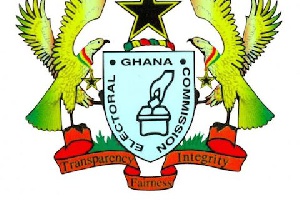The Coalition of Domestic Election Observers (CODEO) has released its pre-election environment observation report on the 2015 District Level Elections (DLE) slated for September 1, pointing secrete political party interferences typifying the campaign process.
The coalition said there is “covert political party intrusions,” in the upcoming district assembly elections, while visibility of civic and voter education across the districts have been minimal.
In a report titled: “Enhancing citizen participation in the 2015 district level elections: deepening Ghana’s decentralization process,” it said the statement is the fourth in the series of pre-election observation issued by the coalition since November 2014.
“The statement covers CODEO’s observation beginning July 20 to August 15, 2015,” Mr. Albert Kofi Arhin, CODEO Coordinator, said in a statement copied to the Ghana News Agency on Thursday.
Mr Arhin said the findings showed that aspirants continued their campaign activities after filing their nominations and it was devoid of violence in almost all districts, although some individuals, or group of individuals continued to vandalize posters of some aspirants;
“Only a few Civil Society Organizations (CSOs) are engaged in promoting citizen participation in the local government elections in the various districts observed,” he added.
According to the coalition, the Electoral Commission was collaborating with the Ghana Education Service to recruit teachers to serve as temporary election officials.
“In addition, the EC registered new voters who turned 18, and replaced lost voters’ identification cards for a fee of GH? 5.00 for people in the Ketu South District of the Volta Region after verifying their identity and issued them with receipts,” he said.
“Despite the seemingly widespread nature of activities being undertaken by the EC in many parts of the country, our pre-election observers reported in other parts the absence of any activities by the EC,” he added.
Mr Arhin said although CODEO observers reported minimal civic and voter education, there were reports of National Commission for Civic Education (NCCE) and EC largely on the forefront of civic and voter education mainly through posters and radio programmes across the districts observed.
“The aspiring candidates have been campaigning using door-to-door strategies, posters, radio programmes and other means of campaigning in the various districts of the country,” he added.
He also said the involvement of non-state actors like civil society organisations (CSOs) in promoting citizen participation has been minimal in most of the districts under observation.
He said some political parties continue to “discretely, or in some cases, support candidates openly”.
Mr Arhin therefore called on election stakeholders including the NCCE, the media, and CSOs to actively encourage citizen interest in the upcoming elections.
“The media should air educational programmes on local governance, the importance of the district and unit committee elections, and the need for the electorate to participate and vote in the September 1st elections,” he said.
He also urged the EC to investigate allegations of political party intrusion in the district level elections process, as well as aspirants aligning themselves with political parties and apply the law on offending political parties and candidates.
Politics of Friday, 21 August 2015
Source: GNA













